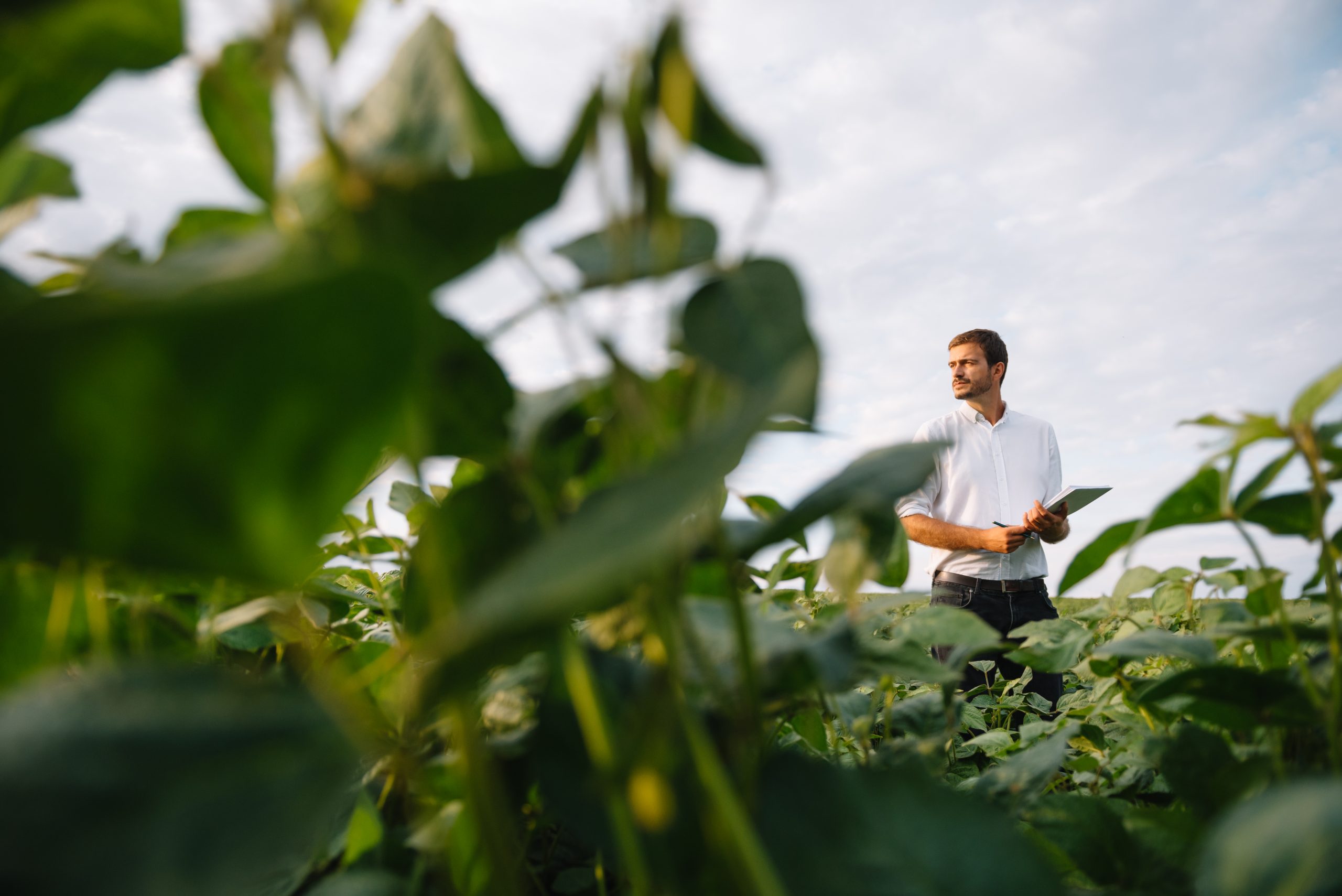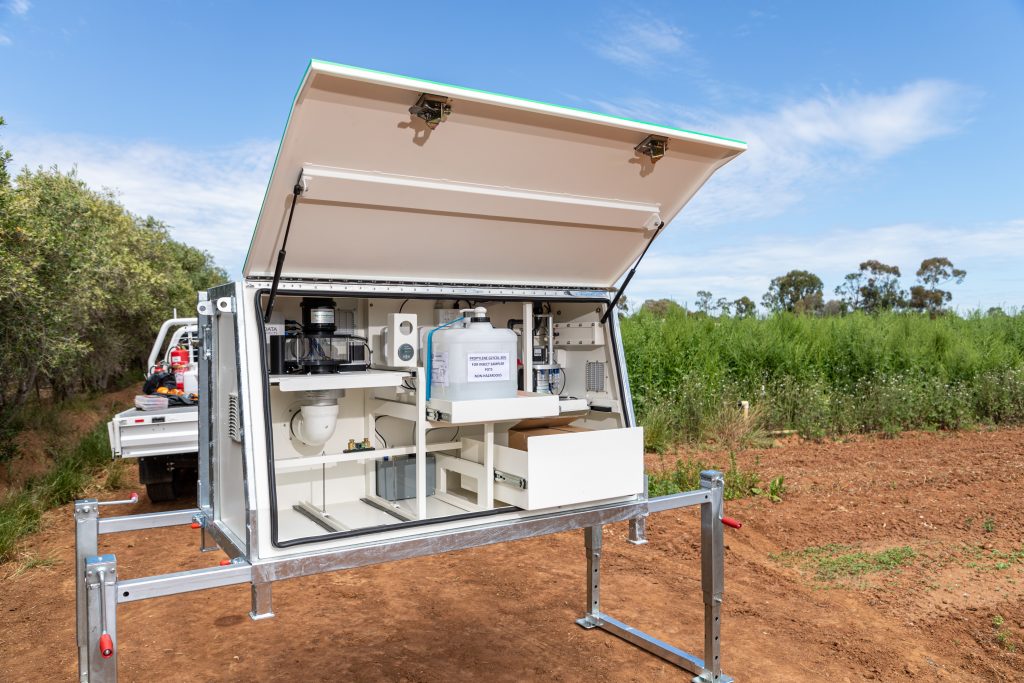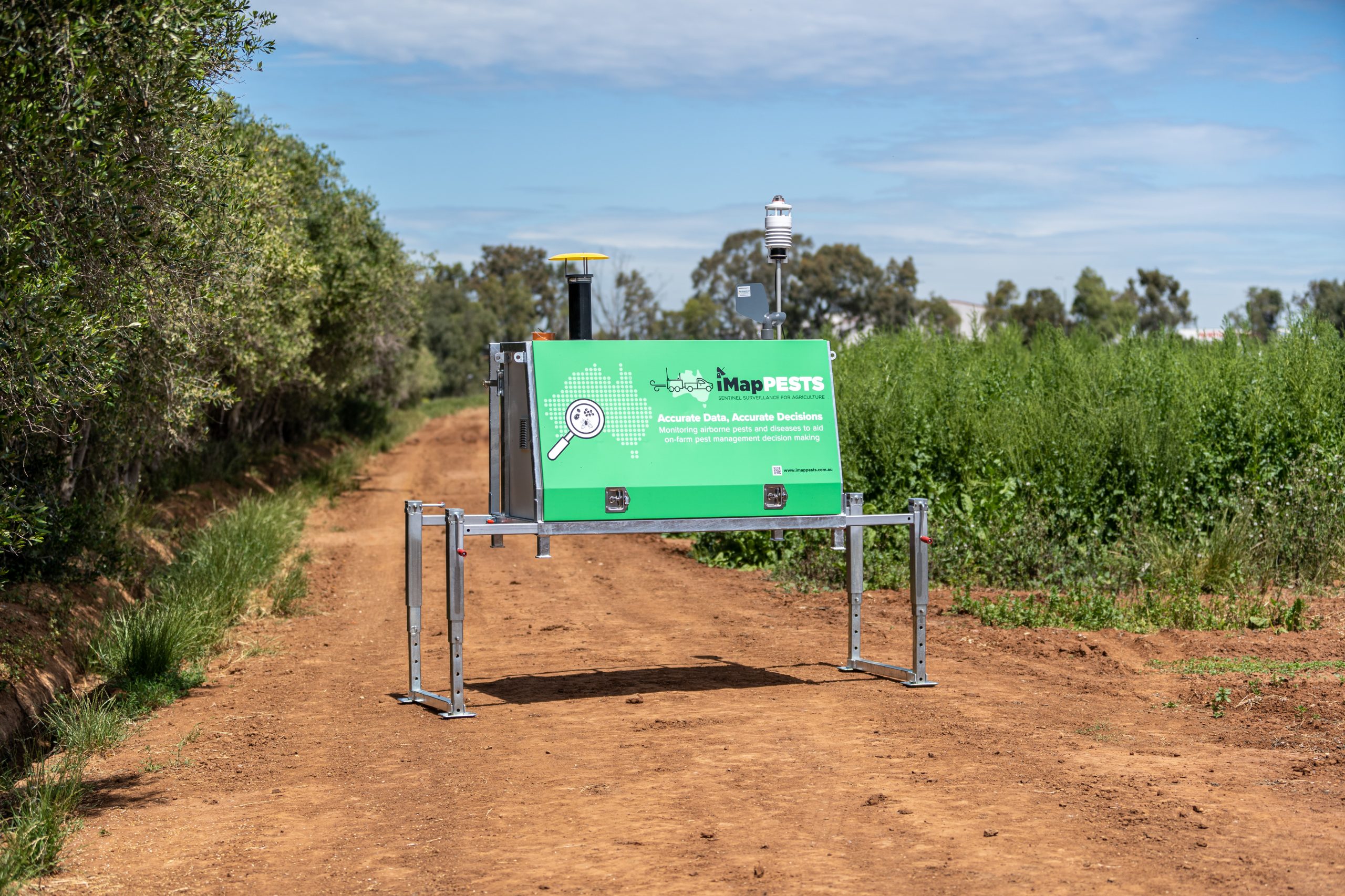
Exotic leafminers awareness video 2020
5 November 2020
AUSVEG joins Smart Farming Partnership project
9 November 2020A high-tech mobile surveillance unit was delivered at the end of October as part of Hort Innovation’s multi-agricultural industry surveillance initiative – iMapPESTS.
The iMapPESTS: Sentinel Surveillance for Agriculture program is researching and developing novel surveillance and cutting-edge diagnostic technologies. These include custom-designed mobile surveillance units (termed ‘sentinels’) that incorporate specialised airborne trapping equipment and technology. Sentinels are deployed to various locations around the country to capture airborne samples that are examined in a laboratory to test the presence or absence of priority pests and pathogens.
The program aims to lay the foundations for a national surveillance system capable of rapidly monitoring and reporting the presence of airborne pests and diseases for multiple agricultural sectors, including viticulture, grains, cotton, sugar, horticulture and forestry.

A high-tech mobile surveillance unit, sentinel 4, was delivered at the end of October as part of Hort Innovation’s multi-agricultural industry surveillance initiative – iMapPESTS.
iMapPESTS is delivering six sentinels by the end of 2020. The fourth sentinel in the suite of six was delivered at the end of October. Sentinels 5 and 6 are under construction and will be delivered by December 2020. Sentinels will be deployed to different environments and crops around the country next year for extensive testing and optimisation.
Hort Innovation’s Research and Development Manager Jessica Holliday said every sentinel looks unique but all six share similar features.
“Each is equipped with several airborne samplers, power supply, a weather sensor, telemetry and an industrial computer for remote control and monitoring. They also include automated technology to configure samplers for different sampling requirements,” she said.
“The newest unit, Sentinel 4, is smarter, smaller, lighter and more flexible compared with earlier sentinels, which is particularly important in the current COVID-19 environment where movement of people and goods are restricted in some parts of the country.
“Nearing the end of this phase of iMapPESTS, in 2021 we will be able to focus on deploying all six sentinels to multiple strategic locations across the country for in-field trialling. Each trial gives us the opportunity to engage with stakeholders in the region and deliver important pest and disease data that could help inform on-farm pest management actions, biosecurity response efforts and proof-offreedom claims.”
South Australian vegetable grower, Anthony De Ieso, Thorndon Park Produce said the sentinel will help him be more efficient on-farm.
“The information will offer insights into the patterns of insect pest numbers and how weather may be influencing their movement, allowing us to make informed pest management decisions,” he said.
Watch the following clip to hear more from Anthony:
The program began in 2017 and will continue until 2023.
Read more in this article which features in the spring 2020 edition of Vegetables Australia. Click here to read the full publication.
Find out more
Please contact Engagement and Adoption Coordinator for iMapPESTS Shakira Johnson on 0433 937 564 or shakira.johnson@ausveg.com.au.
Further details can be found on the iMapPESTS website. You can follow the project on Twitter.
This project is supported by Hort Innovation through funding from the Australian Department of Agriculture, Water and Environment as part of its Rural R&D for Profit Program and funding from 16 partner organisations.
Project Number: ST16010

